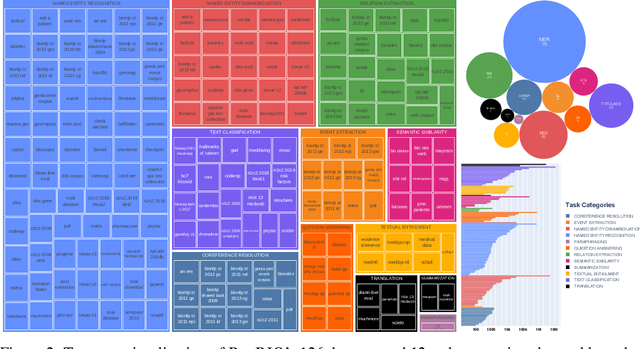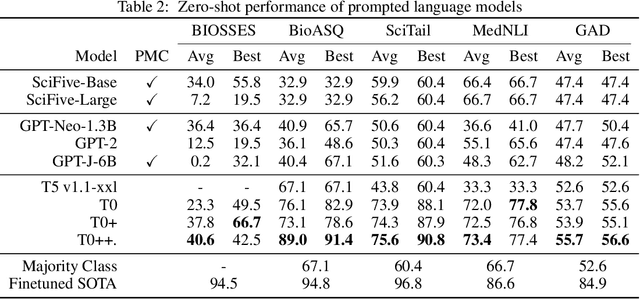Nathan Dahlberg
BLOOM: A 176B-Parameter Open-Access Multilingual Language Model
Nov 09, 2022Abstract:Large language models (LLMs) have been shown to be able to perform new tasks based on a few demonstrations or natural language instructions. While these capabilities have led to widespread adoption, most LLMs are developed by resource-rich organizations and are frequently kept from the public. As a step towards democratizing this powerful technology, we present BLOOM, a 176B-parameter open-access language model designed and built thanks to a collaboration of hundreds of researchers. BLOOM is a decoder-only Transformer language model that was trained on the ROOTS corpus, a dataset comprising hundreds of sources in 46 natural and 13 programming languages (59 in total). We find that BLOOM achieves competitive performance on a wide variety of benchmarks, with stronger results after undergoing multitask prompted finetuning. To facilitate future research and applications using LLMs, we publicly release our models and code under the Responsible AI License.
BigBIO: A Framework for Data-Centric Biomedical Natural Language Processing
Jun 30, 2022



Abstract:Training and evaluating language models increasingly requires the construction of meta-datasets --diverse collections of curated data with clear provenance. Natural language prompting has recently lead to improved zero-shot generalization by transforming existing, supervised datasets into a diversity of novel pretraining tasks, highlighting the benefits of meta-dataset curation. While successful in general-domain text, translating these data-centric approaches to biomedical language modeling remains challenging, as labeled biomedical datasets are significantly underrepresented in popular data hubs. To address this challenge, we introduce BigBIO a community library of 126+ biomedical NLP datasets, currently covering 12 task categories and 10+ languages. BigBIO facilitates reproducible meta-dataset curation via programmatic access to datasets and their metadata, and is compatible with current platforms for prompt engineering and end-to-end few/zero shot language model evaluation. We discuss our process for task schema harmonization, data auditing, contribution guidelines, and outline two illustrative use cases: zero-shot evaluation of biomedical prompts and large-scale, multi-task learning. BigBIO is an ongoing community effort and is available at https://github.com/bigscience-workshop/biomedical
Multi-LexSum: Real-World Summaries of Civil Rights Lawsuits at Multiple Granularities
Jun 23, 2022



Abstract:With the advent of large language models, methods for abstractive summarization have made great strides, creating potential for use in applications to aid knowledge workers processing unwieldy document collections. One such setting is the Civil Rights Litigation Clearinghouse (CRLC) (https://clearinghouse.net),which posts information about large-scale civil rights lawsuits, serving lawyers, scholars, and the general public. Today, summarization in the CRLC requires extensive training of lawyers and law students who spend hours per case understanding multiple relevant documents in order to produce high-quality summaries of key events and outcomes. Motivated by this ongoing real-world summarization effort, we introduce Multi-LexSum, a collection of 9,280 expert-authored summaries drawn from ongoing CRLC writing. Multi-LexSum presents a challenging multi-document summarization task given the length of the source documents, often exceeding two hundred pages per case. Furthermore, Multi-LexSum is distinct from other datasets in its multiple target summaries, each at a different granularity (ranging from one-sentence "extreme" summaries to multi-paragraph narrations of over five hundred words). We present extensive analysis demonstrating that despite the high-quality summaries in the training data (adhering to strict content and style guidelines), state-of-the-art summarization models perform poorly on this task. We release Multi-LexSum for further research in summarization methods as well as to facilitate development of applications to assist in the CRLC's mission at https://multilexsum.github.io.
 Add to Chrome
Add to Chrome Add to Firefox
Add to Firefox Add to Edge
Add to Edge